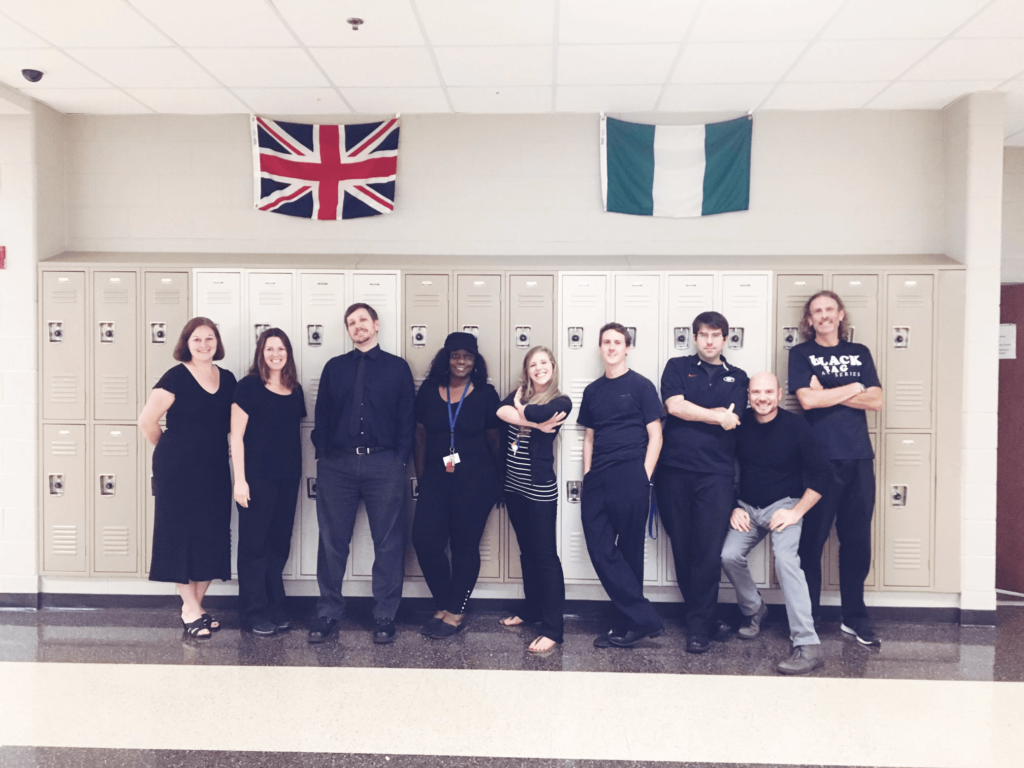Guest Column: Honoring Joshua Sampson
This essay was written by Brittany Moore, Cedar Shoals English department.
For a stoic, Mr. Sampson was quite dynamic — always composed while simultaneously cheerful, hilarious, and even low-key snarky. When we hear the word stoic, most of us think of someone that is devoid of emotion, robotic even. This wasn’t Mr. Sampson.
His type of stoicism is classic, like 3000 century BC posed on a mountainside acropolis, staring off into the horizon with a statuesque thinking face, a gentle sea-breeze blowing his ringlets, Ancient Greece classic.
Classic stoicism is a belief system centered on the principle that to live our best life, a life of happiness and tranquility, one must focus on positive behaviors and actions instead of worrying and despairing emotions. In life, we face forces that are completely out of our control and these tend to be the factors that make us feel stuck, that drag us down into the depths of anxiety and depression. Stoics want us to assess what we can control and what we cannot, and then actively focus our energy on positive behaviors and actions within our control. Stoics work to build a virtuous character, one that does good to others even if others are not good to them. Stoics work to practice gratitude for what they have and let go of suffering for what they don’t. Stoics work to take action in creating the tranquil and peaceful world that we desire.
Mr. Sampson was this type of stoic.

Even if you may not realize it, each and every one of us in this building have benefited from the positive actions of Mr. Sampson. He never sought recognition, and I am absolutely in awe of how much he did. I continue to hear more and more of Sampson’s virtuous deeds both in our school and in our community. There are countless stories of how Sampson impacted their life.
I always knew I could rely on Sampson. I knew he would help me out with school questions or mortgage advice. I knew he would use humor and never make me feel stupid or inferior for not knowing or understanding something. I knew he would stop by my classroom, check in and make me laugh. I knew he would always make time for me even though he was ungodly busy. I knew he would understand my problems and insecurities. I knew that if I had a really difficult puzzle in my puzzle book I could take it to him. I also knew that he would solve the puzzle I had spent three days trying to figure out in thirty minutes and then ask me if I wanted the answer or if I wanted a hint.

As we come together in our grieving, I’m realizing that what he was to me, he was to so many other people as well. I’m realizing that he didn’t just treat me like family, but he treated everyone he interacted with as family. I ask myself how in the world did he make time to build these genuine connections with so many people? He developed more quality relationships with more people than I regularly text. Yet what amazes me the most is that each of these stories have a slightly different flavor, they are nuanced and personalized to the person’s experiences, personality and interests.
How was he able to do it? It seems impossible to live as he did, that he must have had supernatural powers or a rare gift that the rest of us could never hope to possess. But I’d like to propose another perspective.
We started a joke in the English department for when someone completed a tedious and difficult task that would make our lives better in a small way. Explaining a joke sort of ruins it, so I’ll let an example of the exchange speak for itself. On August 3, 2018 at 1:42 PM, Marc Ginsberg sent an email to the English department listserv with the subject line ‘Where is the Tatum Video Library currently located?’ The body of the email stated “I have some things I apparently stole from it.” Two minutes later, at 1:44, Sampson responded with the precise location and that he organized the DVDs last year. Other teachers threw in quips praising Josh’s self-sacrifice for the greater good. The thread closes with another Sampsonism: “Decades after I retire, people will be saying, “Who did that? It’s mildly useful and kind of makes sense.” “Oh, I don’t know. Someone sampson’d it.” The next email is sort of an example.”
Without a doubt Mr. Sampson did have a rare gift, but I believe we can all work to harness his type of magic. It’s the magic of effort, of investing in others, of building authentic relationships with the people we interact with daily, of focusing on what positive actions we can do that will help someone else. As you hear stories of what Sampson did for someone, take note because that absence will be a gap worth filling. If each of us were to start practicing Sampson’s stoicism, to take on one small action to better someone else’s day or our community, our collective effort will be powerful. To honor Mr. Sampson’s life, I propose we continue his great work, I propose we each find opportunities to say “I Sampson’d it.”




